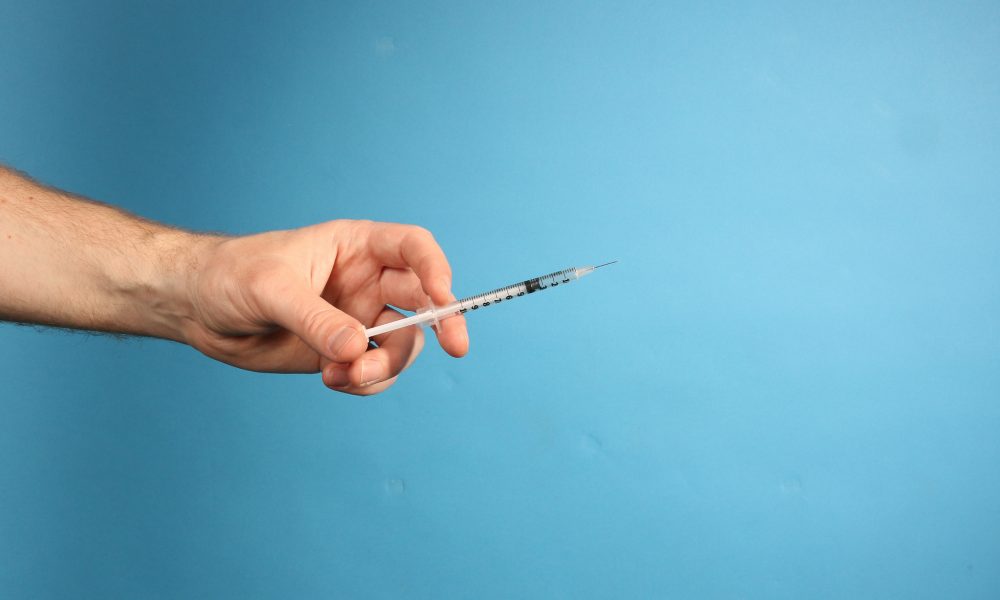A Minnesota law took effect on Tuesday that legalizes drug paraphernalia possession, syringe services, controlled substances residue and testing.
The harm reduction reforms were included in a large-scale criminal justice and public safety omnibus package that Gov. Tim Walz (D) signed in May. They’re becoming effective on the same day that the state’s marijuana legalization law comes into force.
The measure removes language from code that has criminalized the possession and delivery of drug paraphernalia. As revised, the new law only says that it is “unlawful for any person to intentionally manufacture drug paraphernalia for delivery,” omitting the previous possession language for the misdemeanor offense.
Also, small amounts of drug residue that are discovered on paraphernalia will no longer constitute illegal possession under the new law, which incorporated some provisions from a standalone bill sponsored by Sen. Clare Oumou Verbeten (D) and Rep. Aisha Gomez (D).
State law now says that “a person is guilty of controlled substance crime in the fifth degree and upon conviction may be sentenced as provided in subdivision 4 if the person unlawfully possesses one or more mixtures containing a controlled substance classified in Schedule I, II, III, or IV, except a small amount of marijuana or a residual amount of one or more mixtures of controlled substances contained in drug paraphernalia.” (Emphasis added.)
There’s also a new section to statute that authorizes syringe service providers, which are defined as a “community-based public health program that offers cost-free comprehensive harm reduction services.”
The syringe service centers will be allowed to provide sterile needles and other injection equipment, safely dispose of those items, offer educational materials on overdose prevention and safer injection practices, facilitate blood-borne pathogen testing, give referrals to substance misuse treatment and mental health and social services.
The law also makes it so “hypodermic syringes or needles or any instrument or implement which can be adapted for subcutaneous injections” will no longer be considered illegal drug paraphernalia.
The state’s drug code has been amended to remove language that currently prohibits possession of products use for “testing the strength, effectiveness, or purity of a controlled substance.”
Meanwhile, the governor also signed health and human services omnibus legislation in May that includes provisions legalizing the establishment of safe drug consumption sites where people could also use currently illicit substances in medically supervised facilities—another public health tool meant to combat the overdose epidemic.
Harm reduction advocates say that these changes will greatly improve health outcomes for people who use drugs, mitigating the risk of overdose deaths, reducing the spread of blood-borne infections from contaminated needles and assisting those who want to enter into substance misuse treatment.
Lawmakers in several states have moved to advance harm reduction legislation amid the opioid overdose crisis.
—
Marijuana Moment is tracking more than 1,000 cannabis, psychedelics and drug policy bills in state legislatures and Congress this year. Patreon supporters pledging at least $25/month get access to our interactive maps, charts and hearing calendar so they don’t miss any developments.![]()
Learn more about our marijuana bill tracker and become a supporter on Patreon to get access.
—
Since Democrats took the majority in both chambers of the Minnesota legislature after last year’s election, drug policy reform has advanced in a number of areas.
Also as of Tuesday, adults 21 and older in Minnesota can now possess and grow marijuana for personal use under a legalization law that was passed by lawmakers earlier this year. The process of automatically expunging prior cannabis records is also being implemented by state officials.
While traditional recreational cannabis retailers are not expected to open until at least next year, other key components of the legalization law that Walz enacted in May have now gone into effect. Meanwhile, two Indian tribes have been preparing to get a head start on adult-use cannabis sales, with plans to open up shops as early as Tuesday.
The governor also signed legislation in May that establishes a Psychedelic Medicine Task Force that will be responsible for advising lawmakers on “the legal, medical, and policy issues associated with the legalization of psychedelic medicine in the state.”
Lawmakers Vote To End Pre-Employment Marijuana Testing For Most Government Jobs In U.S. Territory
Photo courtesy of Jernej Furman.
Read the full article here

